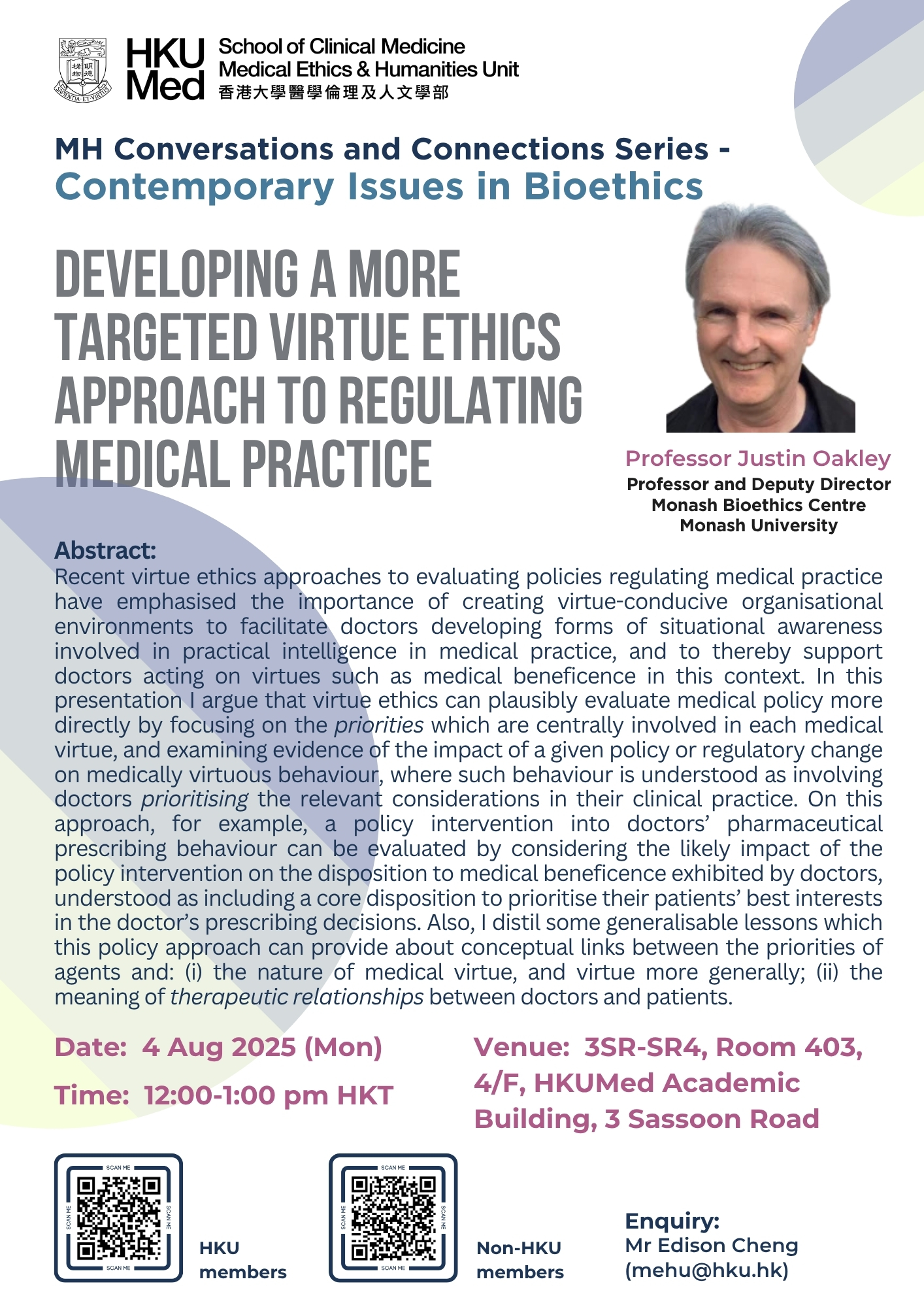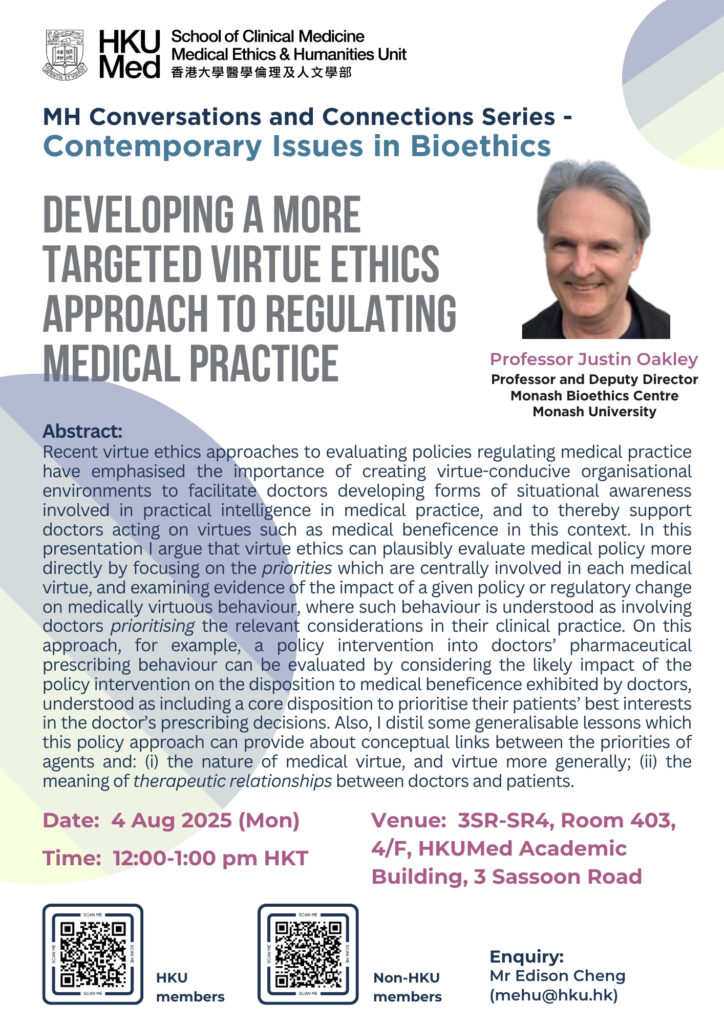Registration Link: For HKU members / Non-HKU members
MH Conversations and Connections Series (Contemporary Issues in Bioethics) – Lunchtime Seminar
Title: Developing a more targeted virtue ethics approach to regulating medical practice
Date: 4 Aug 2025 (Mon)
Time: 12:00-1:00 pm HKT
Venue: 3SR-SR4, Room 403, 4/F, HKUMed Academic Building, 3 Sassoon Road
Registration Link: For HKU members / Non-HKU members
Abstract:
Recent virtue ethics approaches to evaluating policies regulating medical practice have emphasised the importance of creating virtue-conducive organisational environments to facilitate doctors developing forms of situational awareness involved in practical intelligence in medical practice, and to thereby support doctors acting on virtues such as medical beneficence in this context. In this presentation I argue that virtue ethics can plausibly evaluate medical policy more directly by focusing on the priorities which are centrally involved in each medical virtue, and examining evidence of the impact of a given policy or regulatory change on medically virtuous behaviour, where such behaviour is understood as involving doctors prioritising the relevant considerations in their clinical practice. On this approach, for example, a policy intervention into doctors’ pharmaceutical prescribing behaviour can be evaluated by considering the likely impact of the policy intervention on the disposition to medical beneficence exhibited by doctors, understood as including a core disposition to prioritise their patients’ best interests in the doctor’s prescribing decisions. Also, I distil some generalisable lessons which this policy approach can provide about conceptual links between the priorities of agents and: (i) the nature of medical virtue, and virtue more generally; (ii) the meaning of therapeutic relationships between doctors and patients.
Speaker:
Professor Justin Oakley
Professor and Deputy Director of Monash Bioethics Centre
Monash University
Justin Oakley BA, PhD (Philosophy) is Professor and Deputy Director of Monash Bioethics Centre, at Monash University. He is the author of Morality and the Emotions (Routledge, 1993, 2020), and Virtue Ethics and Professional Roles (with Dean Cocking) (Cambridge University Press, 2001), and is editor of Informed Consent and Clinician Accountability: The ethics of report cards on surgeon performance (with Steve Clarke) (Cambridge University Press, 2007), and Bioethics (Ashgate, International Library of Essays in Public and Professional Ethics, 2009). He has published articles on a variety of topics in ethics, applied ethics, and moral psychology, including virtue ethics, virtue attribution, shame, role-based evildoing, hope in healthcare, informed consent, surgeon report cards, surrogate motherhood, and the ethics of pharmaceutical advertising. Justin is also co-editor of the quarterly refereed journal Monash Bioethics Review.
Justin teaches clinicians and other professionals in the Master of Bioethics course at Monash, and he has overall responsibility for ethics curriculum development in the Monash MBBS/MD program. He is currently working on a book-length project on policy applications of virtue ethics in professional practice, Virtue ethics from the inside out: moral psychology to policy. Also, he is leading an Australian Research Council-funded Discovery Project on ‘Religion, Pluralism, and Healthcare Practice: A Philosophical Assessment’.
Justin has 35 years’ experience in clinical ethics research with 91 peer-reviewed publications. Also, he has extensive experience in applying ethical theories (such as virtue ethics), concepts, and principles to improve clinical practice and health care policy.
Welcome to join us!
Enquiry: Please contact Mr Edison Cheng (mehu@hku.hk).


